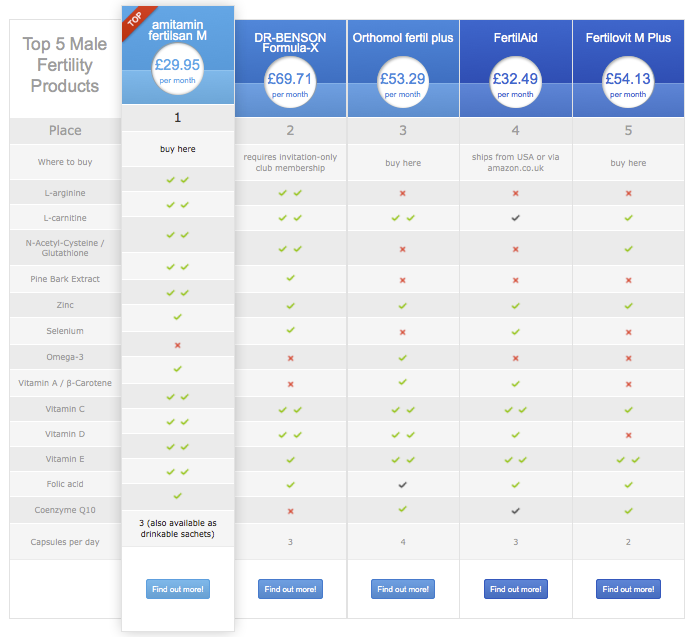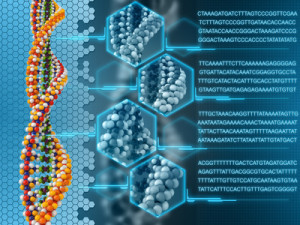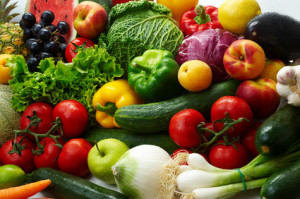Contents
What is glutathione?
[tube]GxnigMFUcRk[/tube]
Glutathione is a protein that is present in every cell of the body, with the highest concentration in the liver. As a sulfuric tripeptide it consists of the following three amino acids: glutamic acid, cysteine and glycine. Scientists first discovered this molecule in 1888, but its metabolism in the body was not properly investigated until 1984.
Glutathione acts as a powerful antioxidant and detoxifier. It protects cells from free radicals and oxidative stress and boosts the immune system.
The levels of this compound in the cells of the body begin to decline after the age of twenty. Additional supplementation of cysteine enables the body to produce more glutathione. This in turn enables the body to reuse oxidised vitamin E and vitamin C when combined with the enzyme glutathione peroxidase.
Health benefits
Scientists have linked decreased levels of this molecule to a number of age-related diseases, including Alzheimer’s disease and macular degeneration. A 2004 study by the University of Alabama found that the red blood cells in male Alzheimer’s patients showed a significant lack of glutathione 1.
A study of patients with heart disease found that the lower the levels of glutathione, the more likely they were to have a heart attack 2. Doctors have also used this compound to treat Parkinson’s disease, sickle cell anaemia and idiopathic pulmonary fibrosis. It can also detoxify the body of heavy metals such as mercury, which makes it useful in the treatment of poisoning.
Cancer
Glutathione’s strong antioxidant properties make it suitable in cases of disadvantageous cell growth such as cancer tumours and lipomas. It is not able to cure cancer, but several studies suggest that the growth of new cancer cells may be reduced. Some doctors therefore recommend its supplementation in treating cancer, as it increases the effectiveness of chemotherapy drugs and reduces their toxicity3.
Male fertility
This compound can positively influence sperm quality. It does this by lowering blood pressure in diabetic patients, decreasing oxidative stress on the sensitive sperm cells and therefore minimising damage to their DNA cargo4.
Therefore scientists recommend that couples who are trying to conceive take supplements containing various micro-nutrients. In particular, they should consume N-Acetyl-Cysteine (NAC), which the body uses to produce L-glutathione.
To effectively increase fertility, men should try to include certain scientifically proven nutrients in their diet. These include arginine, carnitine and pine bark extract. The most efficient and affordable way to do this is to take a combination supplement. These contain several proven male fertility micro-nutrients. This is a good way to improve sperm count, motility and morphology simultaneously.

Compare the best male fertility supplements with amino acids such as cysteine (NAC) and glutathione here
Respiratory health
Doctors can also use this compound to treat asthma and airway restriction in the form of an inhalant. A 2010 study by the University of Utrecht found that it prevents early asthmatic reaction and airway hyper-responsiveness5.
Mental health
Scientists have found a link between low levels of glutathione and psychiatric illnesses including bipolar disorder, schizophrenia and depression. This is because glutathione’s antioxidant effects are important to prevent oxidative stress in the brain 6.
Scientists generally recommend building a sufficient level of glutathione in the blood to protect the body from oxidation. This is damage to the tissue by chemicals called free radicals. Oxidative stress plays a significant role in cancer, atherosclerosis, arthritis and cataracts.
How does it work?
This amino acid is the only intracellular antioxidant. This means it acts inside the cells and it maintains their health and normal performance. It also acts against diseases by neutralising free radicals. Furthermore it keeps other antioxidants, including Vitamin C and E, in their active form.
Additionally it helps the liver to process toxins and it helps with DNA and protein synthesis. This amino acid also regulates both the nitric oxide cycle and the metabolism of iron.
Scientists have found that the glutathione levels in patients with diseases such as AIDS and cancer are very low. Studies are on-going into the reasons for this, but many scientists believe there is a link between low glutathione levels and cell death7.
Several studies of centenarians (people who have lived to be over 100 years old) in countries including Poland, Italy and Denmark, have found very high levels of glutathione in their cells.
Dietary sources
Glutathione occurs naturally in many fresh vegetables, fruits and red meat (beef, mutton and lamb). A healthy diet can help to maintain levels of this amino acid and make it possible for the body to continue to synthesise it.
Vegetables that contain high amounts of sulphur are particularly useful for this. This includes cabbage, broccoli, garlic, kale and cauliflower.
However many of the benefits are lost when food is cooked.
Supplements
The best options for supplementation are combinations of the amino acids cysteine and glutamine. This is because scientists have not yet conclusively researched oral consumption of L-glutathione. In order to maximise the oxidative effect, these amino acids should taken together with selenium, zinc and magnesium.
Certain nutritional supplements, such as pine bark extract, alpha lipoic acid, milk thistle and grape extract can also increase glutathione levels.
While there are many glutathione tablets and supplements on the market, a 1992 study by the University of Bern, Switzerland, found that oral administration of glutathione capsules does NOT raise glutathione levels
The most effective way to increase glutathione levels, along with eating a healthy diet and taking regular exercise, is to ingest a precursor. This contains the molecules needed to stimulate the body to produce glutathione, rather than the protein itself.
One such micro-nutrient is N-Acetyl-Cysteine, also known as NAC. Doctors use this in patients with cystic fibrosis, asthma and bronchitis. Doctors also give large doses of NAC in cases of acetaminophen overdose to prevent liver failure.
The gut’s enzymes destroy unbonded or free cysteine. However if the cysteine molecules are bonded, they will be absorbed into the bloodstream and enter cells. There it can bond with glycine and glutamate to make more glutathione. Daily doses of 500mg or more of Vitamin C have also been found to increase production of glutathione9.
Conclusion
Glutathione is a naturally occurring molecule that is present in every cell of the body. Levels decrease with age and low levels can cause many serious diseases. It is one of the most powerful antioxidants in the body as it is the only one that is intracellular.
Scientists have found it is also useful to other antioxidants as it maximises the activity of Vitamin C, Vitamin E and CoQ10. While a healthy diet and lifestyle can help to slow the body’s decline, supplementing this with glutathione precursors can help to stimulate the body to produce more and thus maintain health and slow the aging process.
Sources
- Liu H, Wang H, Shenvi S, Hagen TM, Liu RM. Glutathione metabolism during aging and in Alzheimer disease. Annals of the New York Academy of Sciences. Internet. 2004. 1019:346-9. Available from: http://www.ncbi.nlm.nih.gov/pubmed/15247041 ↩
- Blankenberg, Stefan, et al. Glutathione peroxidase 1 activity and cardiovascular events in patients with coronary artery disease. New England Journal of Medicine, Vol. 349, October 23, 2003, pp. 1605-13 ↩
- Smyth JF, Bowman A, Perren T, et al. Glutathione reduces the toxicity and improves quality of life of women diagnosed with ovarian cancer treated with cisplatin: results of a double-blind, randomized trial. Ann Oncol 1997;8:569-73 ↩
- Lenzi A, Culasso F, Gandini L, et al. Placebo-controlled, double-blind, cross-over trial of glutathione therapy in male infertility. Hum Reprod 1993;8:1657-62 ↩
- Kloek J, Mortaz E, Van Ark I, Lilly CM, Nijkamp FP, Folkerts G. Glutathione prevents the early asthmatic reaction and airway hyperresponsiveness in guinea pigs. Journal of Physiology and Pharmacology. 2010. 61(1):67-72. Available from: http://www.ncbi.nlm.nih.gov/pubmed/20228417 ↩
- Gawryluk JW, Wang JF, Andreazza AC, Shao L, Young LT. Decreased levels of glutathione, the major brain antioxidant, in post-mortem prefrontal cortex from patients with psychiatric disorders. The international journal of neuropsychopharmacology / official scientific journal of the Collegium Internationale Neuropsychopharmacologicum (CINP). Internet. 2011. 14 (1): 123–30.doi:10.1017/S1461145710000805. PMID 20633320 ↩
- Sastre J, Pallardo FV, Vina J. Glutathione, oxidative stress and aging. Age. Internet. Age 19(4): 129-139. Available from: http://link.springer.com/article/10.1007%2FBF02434082 ↩
- Hagen TM, Wierzbicka GT, Sillau AH, et al. Fate of dietary glutathione: disposition in the gastrointestinal tract. Am J Physiology 1990;259(4Pt1):G530-5) ↩
- Johnston, CS, et al. Vitamin C elevates red blood cell glutathione in healthy adults. American Journal of Clinical Nutrition. Vol. 58, July 1993, pp. 103-05 ↩






